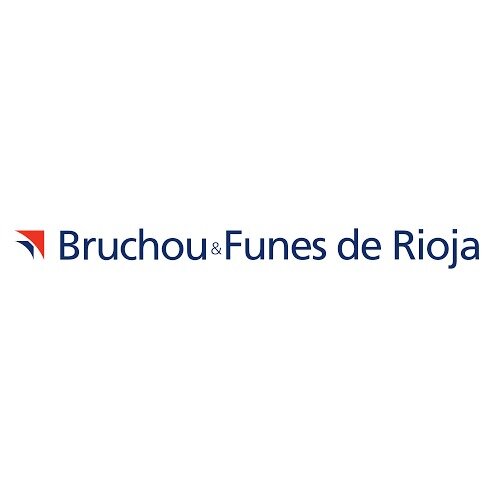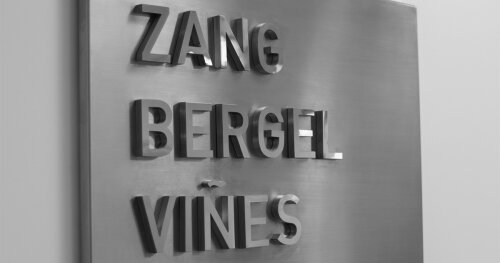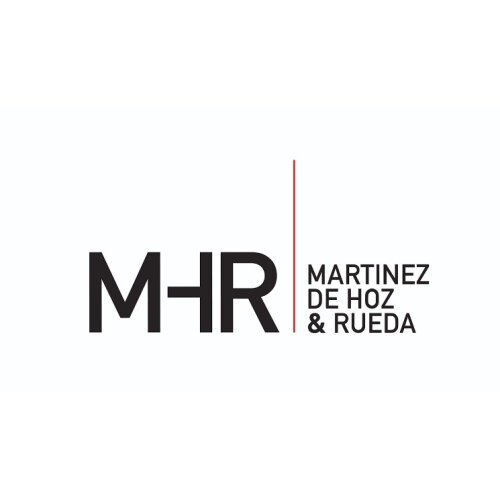Best Public-Private Partnerships (PPP) Lawyers in Buenos Aires
Share your needs with us, get contacted by law firms.
Free. Takes 2 min.
List of the best lawyers in Buenos Aires, Argentina
About Public-Private Partnerships (PPP) Law in Buenos Aires, Argentina
Public-Private Partnerships, often abbreviated as PPP, are legal and contractual frameworks that enable collaboration between government entities and private sector companies to finance, build, operate, and maintain public infrastructure and services. In Buenos Aires, PPP initiatives have been essential for the development of transportation networks, public utilities, healthcare facilities, and various urban development projects. These partnerships aim to leverage the efficiency and experience of the private sector while addressing public sector goals and needs. PPP laws in Argentina, and specifically in Buenos Aires, set the regulatory foundation for initiating, managing, and monitoring these collaborations, ensuring transparency, accountability, and mutual benefit.
Why You May Need a Lawyer
Engaging in a PPP project involves complex legal, financial, and regulatory considerations. You may need a lawyer for several reasons:
- Assistance with interpreting and complying with local and national PPP laws and regulations
- Drafting, reviewing, and negotiating PPP contracts
- Participating in public tenders or bid processes for large-scale infrastructure projects
- Assessing risks and securing legal protections for both public authorities and private partners
- Handling dispute resolution and possible litigation arising from PPP agreements
- Navigating regulatory approvals, permits, and environmental compliance
- Ensuring that projects meet public interest requirements and social obligations
- Managing amendments or early termination of PPP agreements
- Dealing with cross-border elements, such as international investors and contractors
- Ensuring proper implementation, compliance, and monitoring throughout the project lifecycle
Local Laws Overview
PPP arrangements in Buenos Aires are mainly governed by national Law No. 27,328 (Ley de Contratos de Participación Público-Privada) enacted in 2016, supplemented by local regulations and executive decrees. Key aspects include:
- Project Identification and Selection: Government agencies identify suitable projects based on public needs, strategic objectives, and feasibility studies.
- Tender Processes: Competitive bidding is required, emphasizing transparency, fairness, and inclusion of qualified private participants.
- Contract Structure: PPP contracts typically stipulate the roles and responsibilities, investment models, risk-sharing mechanisms, and performance indicators for each party.
- Financial Arrangements: Rules regarding project finance, guarantees, public payments, and user fees are set forth in detail to protect investments and ensure project viability.
- Risk Allocation: Legal provisions seek to distribute risks (construction, operation, financial, legal) equitably between the public and private sectors.
- Regulatory Oversight: Regulatory agencies monitor project execution, contract compliance, and safeguard public interests throughout the PPP course.
- Dispute Resolution: Contracts typically provide for negotiation, mediation, or arbitration to resolve conflicts efficiently.
- Social and Environmental Impact: Projects are subject to assessments and must comply with local environmental and social legislation.
- Local Content Requirements: Some projects require the involvement of local workforce or sourcing of materials from within Argentina.
Frequently Asked Questions
What is a Public-Private Partnership in Buenos Aires?
A Public-Private Partnership is a long-term contractual agreement between a government entity and a private company for the development and management of public infrastructure or services, aiming to combine private sector efficiency with public sector oversight.
Which law governs PPP contracts in Buenos Aires?
PPP contracts in Buenos Aires are mainly regulated by Argentina's national Law No. 27,328, along with relevant local laws and regulations issued by the Government of Buenos Aires.
Who can participate in a PPP project?
Participation is open to domestic and international private entities or consortia meeting eligibility, technical, and financial criteria set during the public tender process.
What types of projects are suitable for PPP in Buenos Aires?
Typical projects include roads, public transport systems, hospitals, water and sanitation facilities, energy projects, and other infrastructure and service developments where public needs align with private sector capabilities.
How are PPP contracts awarded?
PPP contracts are generally awarded through a transparent and competitive public tender process, evaluating factors like technical proposals, financial offers, track record, and compliance with legal and ethical standards.
How are risks managed in PPP projects?
Risks are allocated between public and private partners based on the project's nature and contract specifics. Each party assumes responsibilities for risks they are best equipped to manage, such as construction, operational, financial, or legal risks.
Can disputes in PPP contracts be resolved outside of court?
Yes, most PPP contracts include provisions for negotiation, mediation, or arbitration, allowing disputes to be resolved efficiently outside formal court proceedings.
What are the main legal challenges in a PPP project?
Main legal challenges include ensuring regulatory compliance, securing permits, managing contract modifications or early termination, addressing unforeseen events, and settling disputes between partners or stakeholders.
Is local content required in PPP projects?
Some PPP projects stipulate local content requirements, such as employing local labor or using domestic materials, in accordance with specific contract terms or legal provisions.
What happens if a PPP contract is terminated early?
The legal consequences depend on the cause of termination and the contract terms. Compensation, penalties, and handover procedures are addressed in the PPP agreement, ensuring both parties are protected and public services are maintained.
Additional Resources
If you are seeking more information or need support related to PPP in Buenos Aires, consider the following options:
- Ministry of Finance of the Argentine Republic - PPP Unit
- Government of the City of Buenos Aires - Secretariat of Urban Development
- Argentine Chamber of Construction
- National Agency for Public Procurement (ONC)
- Professional associations specializing in infrastructure law
- Business chambers or bilateral chambers with PPP expertise
- Local universities and research centers focused on public policy and law
Next Steps
If you need legal assistance with a PPP project in Buenos Aires, consider the following steps:
- Compile all relevant information about your PPP project or legal question
- Identify your specific needs, such as contract review, tender participation, or dispute resolution
- Contact a lawyer or legal firm specializing in PPPs and infrastructure law in Buenos Aires
- Seek an initial consultation to assess your situation and potential legal strategies
- Collaborate closely with your legal advisor throughout the project's planning, negotiation, implementation, and management phases
Early legal guidance not only helps avoid common pitfalls but also protects your interests and supports the sustainable success of public and private initiatives in Buenos Aires.
Lawzana helps you find the best lawyers and law firms in Buenos Aires through a curated and pre-screened list of qualified legal professionals. Our platform offers rankings and detailed profiles of attorneys and law firms, allowing you to compare based on practice areas, including Public-Private Partnerships (PPP), experience, and client feedback.
Each profile includes a description of the firm's areas of practice, client reviews, team members and partners, year of establishment, spoken languages, office locations, contact information, social media presence, and any published articles or resources. Most firms on our platform speak English and are experienced in both local and international legal matters.
Get a quote from top-rated law firms in Buenos Aires, Argentina — quickly, securely, and without unnecessary hassle.
Disclaimer:
The information provided on this page is for general informational purposes only and does not constitute legal advice. While we strive to ensure the accuracy and relevance of the content, legal information may change over time, and interpretations of the law can vary. You should always consult with a qualified legal professional for advice specific to your situation.
We disclaim all liability for actions taken or not taken based on the content of this page. If you believe any information is incorrect or outdated, please contact us, and we will review and update it where appropriate.
















